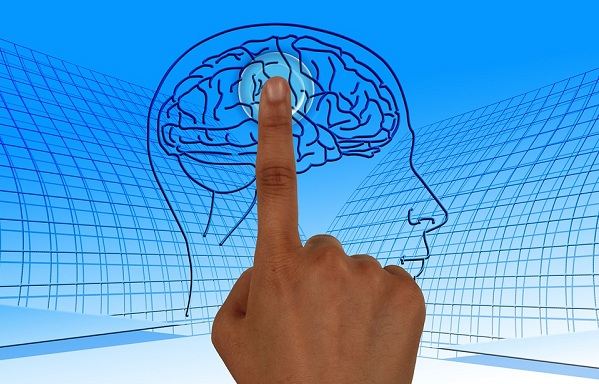You are here
Home 🌿 Medical Cannabis News 🌿 Marijuana could be effective against traumatic brain injury 🌿Marijuana could be effective against traumatic brain injury

Although the lives of patients dealing with a traumatic brain injury have improved manifold in recent years, they find themselves vulnerable to a host of side-effects that come with the modern-day medicine such as opioid painkillers, antidepressants, mood stabilizers and anti-seizure medicines.
The good news, however, is that we can now make use of legal cannabis to treat a traumatic brain injury, without the fear of death and other side-effects (recall, marijuana consumption has never resulted in a single death thus far).
A study published in 2014 found that testing positive for THC while sustaining a traumatic brain injury was associated with decreased mortality – from 11.5% to down to just 2.4%. In this post, we’ll take a look at the available research and scientific evidence that may help us determine if (and how) marijuana could help improve the condition of a person battling TBI.
Symptoms of a traumatic brain injury
TBIs occur because of a severe blow to the head, typically during an athletic event or a road accident. The common symptoms include:
- Mood swings
- Headaches
- Seizures
- Difficulties while speaking
- Loss of motor control
- Loss of memory
How cannabis could prove to be a breakthrough
1) Relieving Symptoms
Cannabis-derived medicines are known to drastically reduce the intensity and frequency of some types of seizures, while at the same time also displaying potent anti-anxiety and antidepressant effects, and that too without any serious side-effects.
Interestingly, a 2017 survey of 271 medical marijuana patients found that nearly 63% of participants preferred cannabis over prescription medications for the management of pain and anxiety.
2) Protection against a TBI
In order to understand this point well, you first need to have a clear understanding of the term ‘endocannabinoids’. Just like a cannabis plant produces phytocannabinoids (CBD, THC), the human body naturally produces similar molecules named endocannabinoids, which are used by the nervous and immune system to communicate.
A number of pre-clinical studies like this have shown that endocannabinoids have neuroprotective properties, which helps the brain and nervous system to recover after a blow.
It has been seen in animal models that CBD works by boosting levels of the body’s own endocannabinoids; while THC — the compound responsible for the “high” — works by taking the place of natural endocannabinoids itself in the body.
Growth of new brain cells
A study from the University of Saskatchewan (2005) found that when rodents were administered with synthetic THC, the cannabinoid apparently boosted the growth of new brain cells in a region known as the hippocampus.
The hippocampus region is responsible for memory, learning and the autonomic nervous system; research has shown that patients battling anxiety and depression often have this portion of their brain adversely affected.
Hence, the growth of new cells, courtesy of cannabis, may help in tackling the situation.
Reduced Brain inflammation
It is a well-known fact that CBD has anti-inflammatory properties. Preclinical research has found that CBD treatment immediately after a loss of oxygen can significantly reduce brain damage.
This 2011 study found that CBD treatment administered to newborn pigs after an injury effectively reduced brain edema, seizures and improved overall motor skills and behavior within just 72 hours after the injury.
Conclusion
The power of cannabinoids should never be underestimated. It’s only a matter of time before cannabis replaces most of the opioid medicines in use for traumatic brain injury treatment.
420 Intel is Your Source for Marijuana News
420 Intel Canada is your leading news source for the Canadian cannabis industry. Get the latest updates on Canadian cannabis stocks and developments on how Canada continues to be a major player in the worldwide recreational and medical cannabis industry.
420 Intel Canada is the Canadian Industry news outlet that will keep you updated on how these Canadian developments in recreational and medical marijuana will impact the country and the world. Our commitment is to bring you the most important cannabis news stories from across Canada every day of the week.
Marijuana industry news is a constant endeavor with new developments each day. For marijuana news across the True North, 420 Intel Canada promises to bring you quality, Canadian, cannabis industry news.
You can get 420 Intel news delivered directly to your inbox by signing up for our daily marijuana news, ensuring you’re always kept up to date on the ever-changing cannabis industry. To stay even better informed about marijuana legalization news follow us on Twitter, Facebook and LinkedIn.




